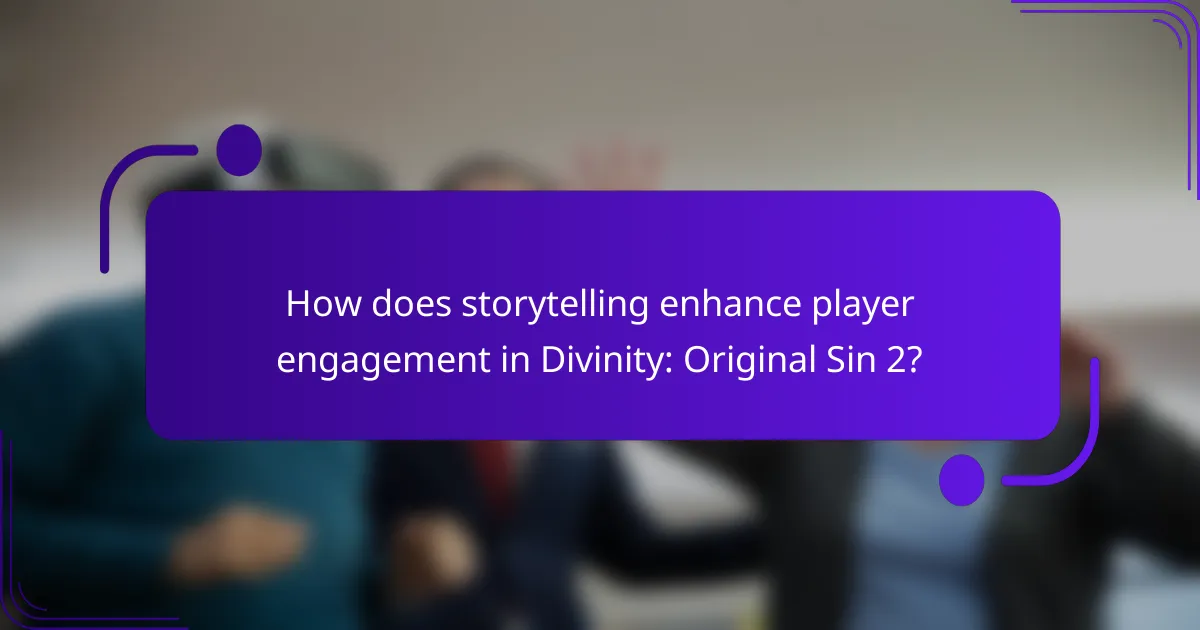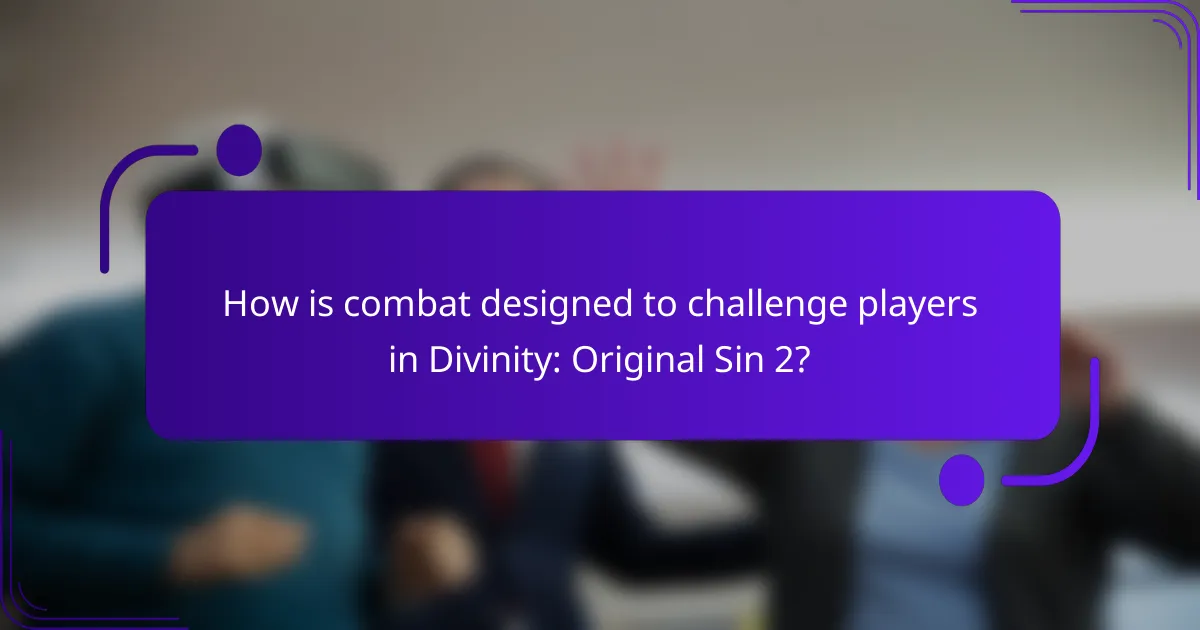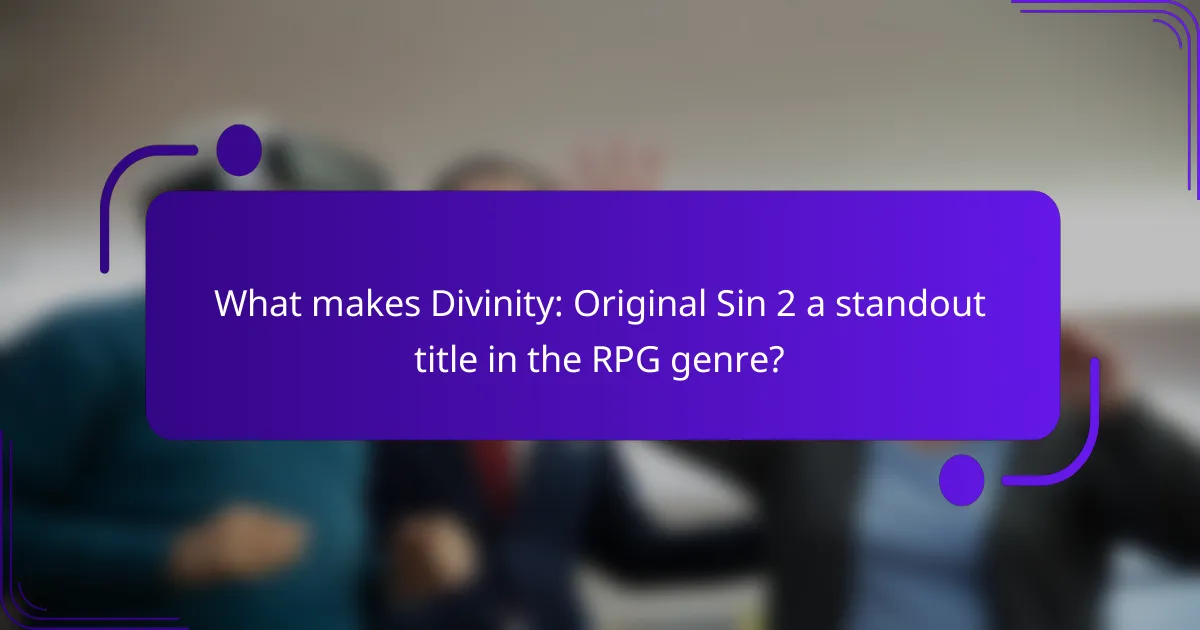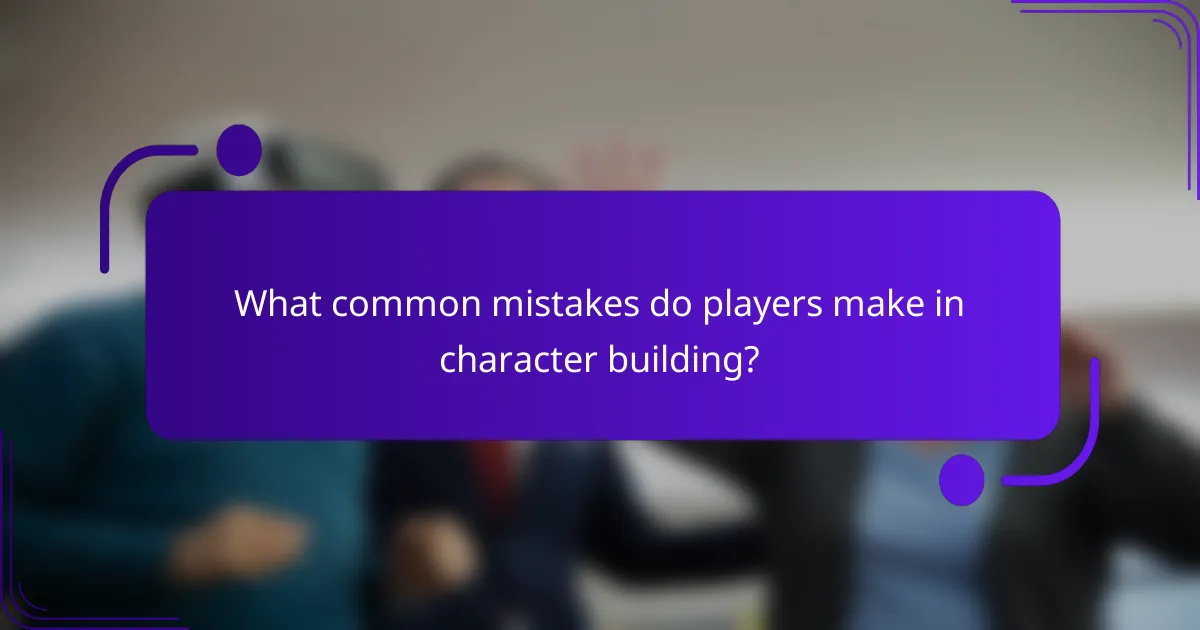Divinity: Original Sin 2 captivates players with its immersive storytelling, deep character development, and strategic combat. The game’s narrative engages players through impactful choices and dynamic dialogue. Character customization enhances personal connections and influences gameplay. Tactical combat challenges players to utilize environmental elements and character abilities effectively.

How does storytelling enhance player engagement in Divinity: Original Sin 2?
Storytelling significantly enhances player engagement in Divinity: Original Sin 2 by creating immersive narratives that foster emotional investment. The game’s rich character development allows players to form deep connections with their avatars, influencing decisions and outcomes. Dynamic dialogue options and branching storylines amplify player agency, making each choice impactful. This depth of storytelling not only captivates players but also encourages exploration and experimentation within the game world.
What narrative techniques are used to create immersive experiences?
Divinity: Original Sin 2 employs various narrative techniques to create immersive experiences, including branching storylines, deep character backstories, and dynamic dialogue choices. These elements enhance player engagement and emotional investment in the game. The use of environmental storytelling further enriches the world, allowing players to uncover lore and character motivations through exploration. Additionally, the integration of combat with narrative consequences creates a seamless blend of gameplay and story, reinforcing the impact of player decisions.
Which character arcs resonate most with players?
Character arcs that resonate most with players in Divinity: Original Sin 2 include personal growth, moral dilemmas, and transformative experiences. Players connect deeply with characters like The Red Prince, whose journey from entitlement to humility is compelling. Similarly, Fane’s exploration of identity as an undead character invites reflection on mortality. The game’s rich storytelling allows players to influence these arcs, enhancing emotional investment. Choices shape character development, making each playthrough unique and impactful.
How does the branching storyline impact replayability?
The branching storyline in Divinity: Original Sin 2 significantly enhances replayability. Players experience diverse outcomes based on choices, leading to unique character arcs and plot developments. This variability encourages multiple playthroughs to explore different storylines and character interactions. Each decision can alter alliances, quests, and endings, making the game feel fresh and engaging on repeated attempts. The depth of character development adds further layers, inviting players to experiment with various builds and strategies, ultimately enriching the overall gaming experience.

What are the key elements of character development in Divinity: Original Sin 2?
Character development in Divinity: Original Sin 2 involves intricate storytelling, player choices, and character customization. Players shape their characters through unique backstories, skills, and attributes. Each character’s journey is influenced by decisions, affecting relationships and narrative outcomes. The game emphasizes role-playing through combat styles and character interactions, allowing for diverse gameplay experiences.
How do player choices shape character progression?
Player choices significantly influence character progression in Divinity: Original Sin 2. Each decision affects attributes, skills, and story outcomes, creating a personalized gameplay experience.
Choices determine character builds, such as selecting abilities that align with a player’s preferred playstyle. For instance, choosing stealth skills enhances sneaking and assassination capabilities, while opting for elemental magic improves combat versatility.
Furthermore, player decisions impact relationships with NPCs, unlocking unique quests and story arcs. This dynamic interaction fosters a sense of agency, as choices can lead to varying consequences and endings.
Ultimately, the game’s design emphasizes the importance of player agency, making each choice a pivotal moment in character development and overall narrative progression.
What role do backgrounds and origins play in character depth?
Backgrounds and origins significantly enhance character depth in Divinity: Original Sin 2. They provide context for motivations, shaping how characters interact with the world and each other. Unique attributes, such as a character’s past experiences or cultural heritage, influence their dialogue options and choices. This depth fosters player engagement, as backstories create emotional connections and impact gameplay decisions. As a result, players experience a more immersive narrative that reflects individual character arcs and relationships.
Which skills and abilities offer the most strategic advantages?
Character customization and strategic planning offer the most advantages in Divinity: Original Sin 2. Players can tailor their characters’ skills to fit various combat styles and storytelling elements.
Key abilities such as Persuasion enhance dialogue options, while skills like Warfare and Scoundrel improve combat effectiveness. Investing in these areas allows players to navigate challenges creatively and effectively.
The game’s flexibility in character development encourages experimentation, making each playthrough unique. Mastering these skills can lead to richer storytelling experiences and more successful combat encounters.

How is combat designed to challenge players in Divinity: Original Sin 2?
Combat in Divinity: Original Sin 2 is designed to challenge players through strategic depth, environmental interactions, and diverse character abilities. Players must utilize terrain, elemental effects, and positioning to gain advantages. The turn-based system encourages tactical planning, requiring players to anticipate enemy moves and react accordingly. Unique attributes, such as character-specific skills and synergies, further enhance combat complexity, making each encounter distinct and engaging.
What tactical elements are essential for success in battles?
Tactical elements essential for success in battles include strategic positioning, effective use of terrain, and coordinated team actions. In “Divinity: Original Sin 2,” understanding character abilities enhances combat effectiveness. Utilizing elemental interactions can exploit enemy weaknesses, while maintaining a balanced party composition ensures versatility. Timing and resource management, including health and action points, are crucial for sustained engagement.
How do environmental factors influence combat strategies?
Environmental factors significantly influence combat strategies in Divinity: Original Sin 2 by affecting terrain, weather, and elemental interactions. Players must adapt their tactics based on the environment to exploit advantages. For instance, high ground provides a tactical edge, while rain can enhance water-based spells. Additionally, obstacles can be used for cover or to block enemy movement. Understanding these elements allows for more effective use of character abilities and positioning, ultimately leading to strategic victories in battles.
Which character classes provide unique combat experiences?
Divinity: Original Sin 2 features character classes that offer distinct combat experiences. Classes like the Wizard utilize powerful spells, while the Rogue excels in stealth and critical hits. The Fighter boasts high durability and melee prowess, and the Ranger specializes in ranged attacks and animal companions. Each class enhances strategic gameplay through unique abilities and combat styles.

What makes Divinity: Original Sin 2 a standout title in the RPG genre?
Divinity: Original Sin 2 stands out in the RPG genre due to its intricate storytelling, deep character development, and strategic combat mechanics. The narrative is rich and player-driven, allowing choices to significantly impact the game world. Character development is robust, featuring unique backgrounds and abilities that enhance gameplay. The combat system combines tactical depth with turn-based mechanics, encouraging strategic thinking. These elements create an immersive experience that resonates with players, setting the game apart from others in the genre.
How does it compare to other RPGs in terms of storytelling and mechanics?
Divinity: Original Sin 2 excels in storytelling and mechanics compared to other RPGs. Its narrative depth includes branching storylines and character-driven plots, enhancing player engagement.
Character development features unique attributes like origin stories, allowing players to explore personal backgrounds and relationships. Combat mechanics integrate turn-based strategy with environmental interactions, promoting tactical gameplay.
In contrast, many RPGs rely on linear narratives or generic character arcs, limiting player choice. Divinity: Original Sin 2’s focus on player agency sets it apart, offering a rich, immersive experience.
Overall, its combination of intricate storytelling and innovative mechanics makes it a standout in the RPG genre.
What innovations in gameplay mechanics set it apart?
Divinity: Original Sin 2 innovates gameplay mechanics through its turn-based combat, deep character customization, and interactive environments. The combat system emphasizes tactical decision-making, allowing players to exploit elemental interactions for strategic advantages. Character development features a unique origin system, enabling players to choose backgrounds that influence storylines and interactions. Additionally, the game offers rich environmental interactivity, where players can manipulate the surroundings to gain tactical benefits, enhancing the overall gameplay experience.

How do multiplayer features enhance the overall experience?
Multiplayer features significantly enhance the overall experience in Divinity: Original Sin 2 by promoting collaboration and strategic depth. Players can share decision-making, allowing for richer storytelling and character development. Cooperative combat encourages diverse tactics, leading to more engaging gameplay. Additionally, the ability to influence the narrative together fosters a unique bond among players. This shared journey results in memorable experiences that single-player modes cannot replicate.
What are the benefits of cooperative gameplay in Divinity: Original Sin 2?
Cooperative gameplay in Divinity: Original Sin 2 enhances teamwork, strategic depth, and storytelling immersion. Players can combine unique abilities, leading to diverse combat strategies. This collaboration fosters stronger character development as players explore different perspectives and choices together. Additionally, shared experiences create memorable moments, enriching the overall narrative.
How does player interaction affect story outcomes?
Player interaction significantly alters story outcomes in Divinity: Original Sin 2. Choices made by players impact character development, plot progression, and relationships with NPCs. The game’s branching narratives allow for multiple endings based on player decisions. Unique attributes, such as character skills and party dynamics, further influence how stories unfold. As a result, player agency enhances replayability and personal investment in the narrative.

What common mistakes do players make in character building?
Players often make mistakes in character building by neglecting synergy between skills, focusing too much on single attributes, and failing to consider team composition. A common error is over-specialization, which limits versatility in combat situations. Additionally, players may overlook the importance of equipment and its impact on character abilities. Balancing offensive and defensive capabilities is crucial for effective gameplay. Understanding the unique attributes of each character class can enhance strategic choices and improve overall performance.
How can players optimize their character builds for better performance?
Players can optimize their character builds by focusing on synergistic skills, attributes, and equipment. Prioritize attributes that enhance your chosen playstyle, such as Strength for melee or Intelligence for magic.
Experiment with different combinations of skills to discover powerful synergies. For example, pairing fire spells with oil surfaces can maximize damage. Ensure your equipment complements your build, enhancing critical stats and resistances.
Consider the unique attributes of each character class. For instance, a Ranger benefits from high Dexterity and ranged abilities, while a Wizard excels with spells and Intelligence.
Regularly reassess your build based on the challenges faced in the game. Adaptation is key to maintaining optimal performance throughout the evolving storyline and combat scenarios.
What best practices should players follow for effective combat strategies?
To achieve effective combat strategies in Divinity: Original Sin 2, players should focus on teamwork, positioning, and resource management. Utilize character abilities synergistically to maximize damage and control.
Prioritize high ground for combat advantages. Characters with ranged attacks benefit significantly from elevated positions, increasing accuracy and damage output.
Manage action points efficiently to execute multiple actions per turn. Plan moves strategically to avoid leaving characters vulnerable.
Adapt strategies based on enemy weaknesses. Identify elemental affinities and exploit them to gain an upper hand in battle.